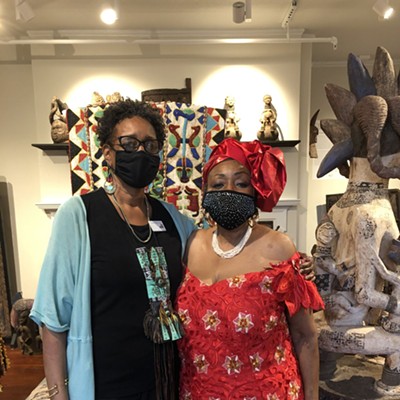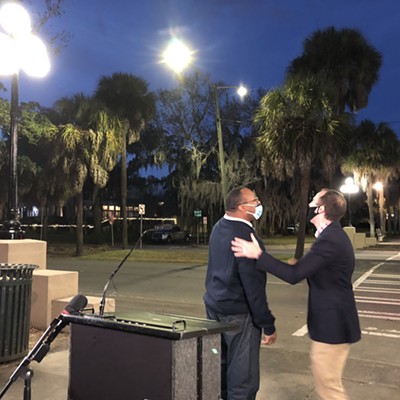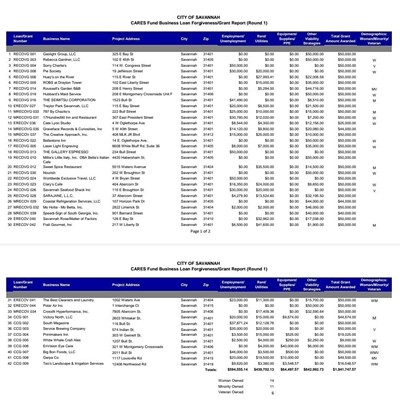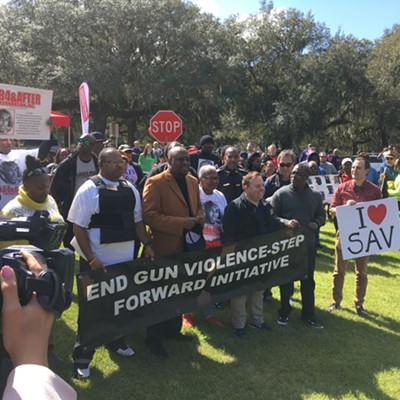A FEW of you might remember a Savannah Alderman at Large named Gary Gebhardt. An architect in his day job, he was defeated for reelection in 1999 by an African American woman.
An analytical sort, Gebhardt was gracious in defeat, musing to me in an interview afterward, and I paraphrase:
“When you look at the demographic growth patterns it really makes more sense for Savannah that she won the seat. Moving into the future, the most numerous single group in Savannah will be black women.”
The woman who took Gebhardt’s seat? Edna Jackson.
That win was Jackson’s springboard to success. She served as Alderwoman At Large for 12 years before successfully running for Mayor in 2011.
Significantly, Jackson was elected to City Council that first time in a runoff. She was pitted against Miriam Center, mother of current Chatham County Commissioner Tony Center and, ironically enough, of current Jackson campaign manager Scott Center.
This Dec. 1 Jackson finds herself in another runoff, against Eddie DeLoach.
There are two other runoffs: Incumbent Mary Osborne faces Bill Durrence in District 2, and Alicia Blakely faces Brian Foster for the open At Large Post Two seat.
As the grimly sardonic Election Gods would have it, and really largely by chance, every single runoff election this year pits an African American woman against a white man.
Every single runoff. All three.
What I’m saying, given Savannah’s long history of racially divisive elections, is there is every likelihood that this will be one of the most brutally racially polarizing election years here in quite awhile.
I hope to be proven wrong. But the recipe is there. There’s a lot of power on the line, and Savannah’s stark racial divide has been cynically manipulated before for much lower stakes.
That said, these matchups don’t appear to necessarily relate to any larger trend. Each campaign had its own dynamics and twists and turns.
For example, if Detric Leggett had gained a few more votes in District Two, it would be him facing the incumbent Mary Osborne, not Bill Durrence.
And the conversation today wouldn’t be about a white man going up against a black woman, but instead about the generational struggle between the old guard black leadership and a younger generation of African American activism.
And if Joe Steffen had garnered a few more votes for Post Two At Large, it would be him, not Blakely, going up against Brian Foster. So it would be two white dudes with different philosophies battling it out.
But that’s what happens when you have only 35 percent turnout in a really important election. The comparatively small number of people who bother to vote get to decide everything for everyone else.
What looks like a trend may actually just be too small a sample size to tell.
It is what it is, and now—unless things have all of a sudden changed in Savannah overnight—we will probably experience a nasty undercurrent of racial tension playing out over the next three weeks.
We got a preview in October, when some white high school students, apparently working on DeLoach’s campaign, posted an amateurish video which at one point involved burning an Edna Jackson campaign sign.
The video was clearly in poor taste and ill-advised, but the comparisons to a KKK cross burning by the Jackson campaign seemed a bit forced, to say the least.
In any case the video had no discernible impact on DeLoach’s strong performance Nov. 3, in which he garnered only two percent less than Jackson.
Could DeLoach weather another incident with racial overtones? In the dramatically reduced universe of runoff voters—the runoff coming very soon after Thanksgiving—probably not.
He needs to be very careful with whom he associates, and if he can’t manage that... he probably doesn’t deserve to be mayor. If he does—and if he can turn out enough voters in District 4, traditionally the City’s highest-turnout district—he can win.
I have no idea what will happen in the other races, other than to say Blakely and Osborne both benefit hugely from Mayor Jackson being in a runoff rather than winning outright.
But the much larger racial issue that played out over this election has less to do with the people in the Dec. 1 runoff than with what we saw on Nov. 3.
Facebook blew up all over Chatham County as hundreds, and more likely thousands, of first-time voters in the mostly white unincorporated area clearly mistakenly thought they were eligible to vote in the City election.
Judging from their outraged posts, they literally didn’t know we have a separate City and County government here.
They didn’t seem to realize that if you live in the County but outside the City—for example on Wilmington Island or Isle of Hope or the Landings—you cannot vote for Savannah Mayor no matter how much you want to, or demand to, or feel you’re entitled to because you commute downtown every day before returning to the suburbs at night.
While most of the misunderstanding was just that, a misunderstanding, the angry, resentful posts of these County voters—barred from voting where they don’t reside, as is the case literally everyplace else in the United States—laid bare a disturbing racial and class divide.
It became graphically clear to me that the bulk of the supposed “change vote” and enthusiasm to throw the incumbents out was coming from people, almost all of them white, who were ineligible to vote in the City of Savannah.
The election results we got instead were much more incumbent-friendly, and much friendlier to African American incumbents in particular.
The divide is profound, it is racial, it is economic, it is political, and it is geographical.
Unless we bridge that divide —in some cases literally bridge it—Savannah has little hope of unity or true prosperity for all citizens moving forward.
There is only one political and legal remedy for the situation: Consolidation of City and County governments, should a majority of voters in the County support it.
It would be a painful process not without racial polarization of its own. But in the long run, consolidation is the only way to merge the tax bases of the City and the County and solve our long-running generational divide between the impoverished, often desperate inner city and the affluent, often entitled, suburbs.
It’s possible that Edna Jackson’s career will both begin and end in a runoff.
But either way, and no matter who wins on Dec. 1, the larger issue of the racial and class divide between the City of Savannah and unincorporated Chatham County will continue to divide all our hopes and dreams unless it is addressed.































